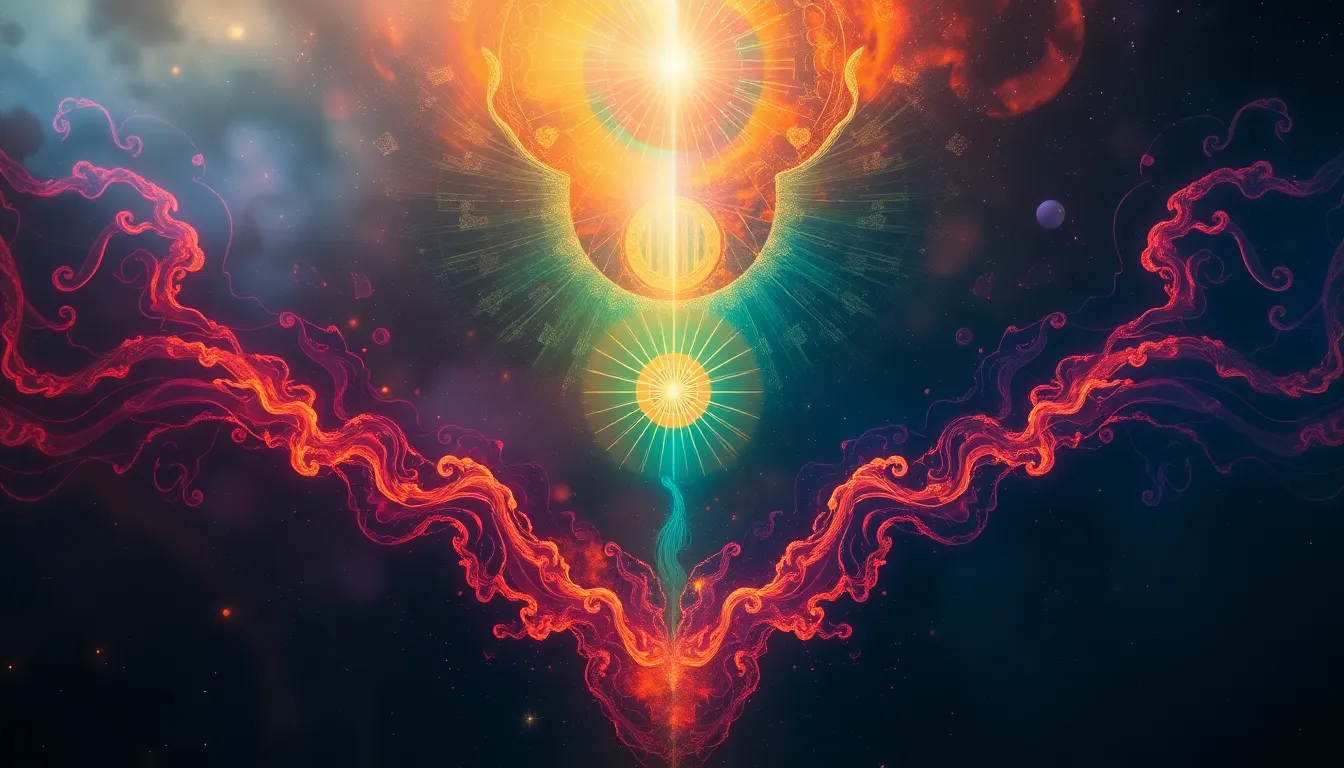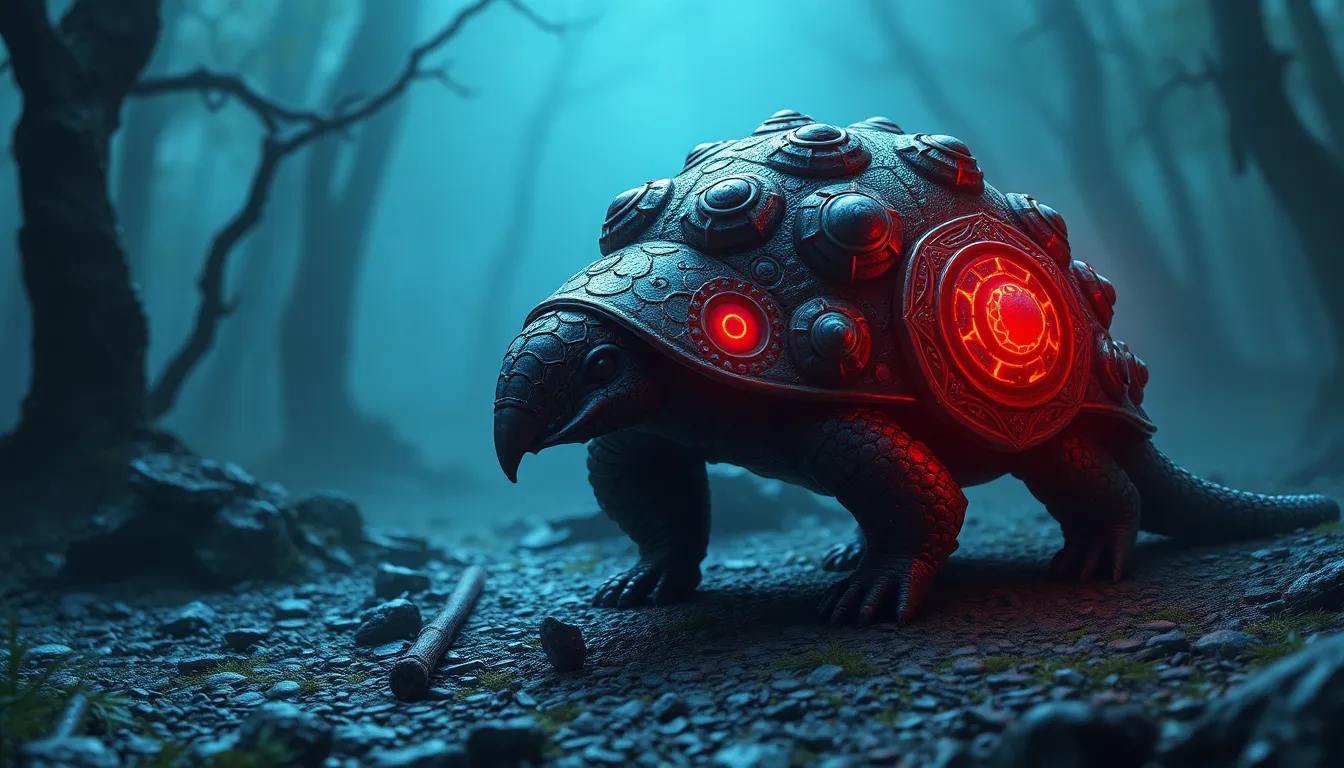The Divine Spectrum: How Creation Myths Color Our Reality
Introduction: The Power of Creation Myths
Creation myths are foundational narratives that explain the origins of the world, humanity, and the cosmos. They serve as a lens through which various cultures understand their existence and the universe around them. These myths are significant not only for their historical and cultural contexts but also for their ongoing influence on contemporary beliefs, values, and practices.
The purpose of this article is to explore how creation myths shape our understanding of reality, examining their role throughout history, common themes, cultural variations, psychological impacts, and their relevance in modern contexts.
The Role of Mythology in Human History
Throughout human history, creation myths have played a vital role in shaping civilizations. Ancient societies used these narratives to explain natural phenomena, establish societal norms, and create a shared identity among members.
Mythological narratives vary across cultures, yet they often share common elements that resonate with the human experience. For example, many myths feature a heroic figure or divine being that overcomes chaos to bring order to the universe. This archetypal storyline reflects humanity’s ongoing struggle between chaos and order.
The impact of mythology on societal norms and values is profound; these stories often dictate moral codes, social hierarchies, and cultural practices, influencing everything from law to art and religion.
Common Themes in Creation Myths
Creation myths often contain recurring motifs that reveal deep symbolic meanings:
- Chaos: Many myths begin with a state of chaos, reflecting the unknown aspects of existence that humanity seeks to understand.
- Divine Beings: Gods or supernatural entities are typically central to these narratives, representing the forces that shape reality.
- Cosmic Order: The establishment of order from chaos symbolizes humanity’s desire for stability and understanding in a complex world.
These themes not only reflect the human experience but also articulate our innate curiosity about existence, the cosmos, and our place within it.
Cultural Variations: A Comparative Study
Creation myths vary widely across cultures, each offering unique insights into their respective societies:
- Mesopotamian Myths: The Enuma Elish narrates the creation of the world from the body of the slain goddess Tiamat, emphasizing themes of conflict and supremacy.
- Hindu Myths: The Rigveda describes the universe emerging from the primordial being, Purusha, highlighting the interconnectedness of all life.
- Aboriginal Myths: Dreamtime stories articulate the creation of the land and its inhabitants, emphasizing a profound connection to nature.
- Greek Myths: Hesiod’s Theogony presents a genealogy of gods and the creation of the cosmos from chaos, reflecting the Greeks’ understanding of order and power.
Geography and environment heavily influence these narratives, with each culture’s myths reflecting the challenges and resources of their surroundings.
The Psychological Impact of Creation Myths
Carl Jung’s concept of archetypes and the collective unconscious suggests that creation myths resonate deeply within us, forming a part of our shared human psychology.
These myths help individuals and societies construct their identities, offering frameworks for understanding existence and coping with existential questions:
- Identity Formation: Myths provide narratives that help individuals define themselves in relation to their culture.
- Coping Mechanisms: They offer explanations for life’s mysteries, helping people navigate fear and uncertainty.
Creation Myths in Modern Contexts
Creation myths remain relevant in contemporary culture, manifesting in literature, film, and art. Modern narratives often reinterpret traditional myths, providing new insights into age-old questions.
For instance:
- Movies like “Interstellar” explore cosmic themes that echo ancient creation myths.
- Literature, such as Neil Gaiman’s “American Gods,” blends traditional mythological elements with modern storytelling.
These reinterpretations address contemporary societal issues, including environmentalism and the impact of technology on existence.
The Intersection of Science and Myth
The relationship between creation myths and scientific explanations, such as the Big Bang Theory, often sparks debate. While science provides empirical evidence for the origins of the universe, myths fulfill a different role, offering meaning and context to human existence.
Importantly, myths can coexist with scientific understanding, providing a narrative framework that helps individuals make sense of complex scientific concepts.
Creation Myths and Spirituality
Creation myths also carry significant spiritual implications, shaping how different faiths interpret the act of creation.
For instance:
- In Christianity, the Genesis account emphasizes a divine creator and the inherent goodness of creation.
- In Buddhism, the focus is on the cycle of birth and rebirth, reflecting a different understanding of existence and creation.
These interpretations influence moral and ethical frameworks, guiding followers in their daily lives and interactions with others.
The Future of Creation Myths
As societies evolve, new myths may emerge, reflecting contemporary values and challenges. Technology and globalization may shape future narratives, creating a hybrid of traditional and modern mythologies.
Preserving traditional myths is crucial in a rapidly changing world, as they provide historical context and a sense of identity that can guide future generations.
Conclusion: Embracing the Divine Spectrum
Creation myths are more than mere stories; they are essential elements that color our understanding of reality. By exploring their significance, themes, cultural variations, and psychological impacts, we can appreciate the rich tapestry of human experience. As we navigate an ever-changing world, embracing these narratives can help us find meaning, connection, and a sense of place within the divine spectrum of existence.




